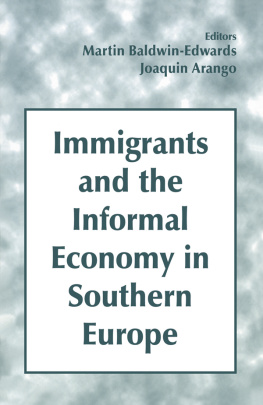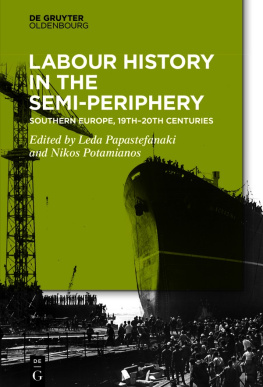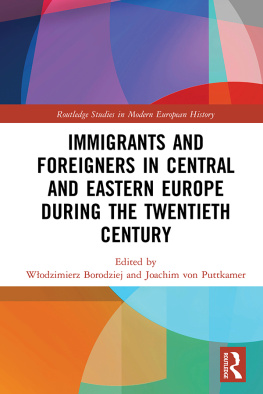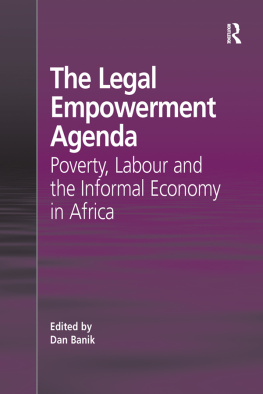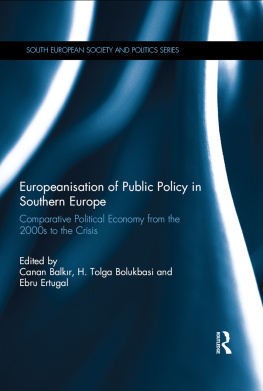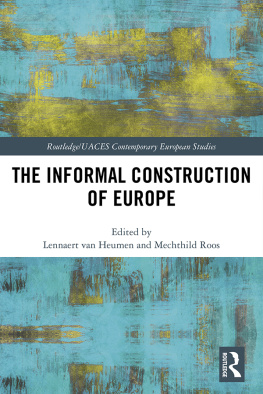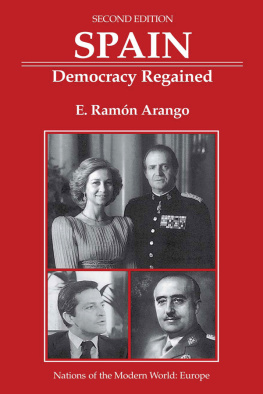Joaquin Arango - Immigrants and the Informal Economy in Southern Europe
Here you can read online Joaquin Arango - Immigrants and the Informal Economy in Southern Europe full text of the book (entire story) in english for free. Download pdf and epub, get meaning, cover and reviews about this ebook. year: 2014, publisher: Routledge, genre: Politics. Description of the work, (preface) as well as reviews are available. Best literature library LitArk.com created for fans of good reading and offers a wide selection of genres:
Romance novel
Science fiction
Adventure
Detective
Science
History
Home and family
Prose
Art
Politics
Computer
Non-fiction
Religion
Business
Children
Humor
Choose a favorite category and find really read worthwhile books. Enjoy immersion in the world of imagination, feel the emotions of the characters or learn something new for yourself, make an fascinating discovery.
- Book:Immigrants and the Informal Economy in Southern Europe
- Author:
- Publisher:Routledge
- Genre:
- Year:2014
- Rating:3 / 5
- Favourites:Add to favourites
- Your mark:
- 60
- 1
- 2
- 3
- 4
- 5
Immigrants and the Informal Economy in Southern Europe: summary, description and annotation
We offer to read an annotation, description, summary or preface (depends on what the author of the book "Immigrants and the Informal Economy in Southern Europe" wrote himself). If you haven't found the necessary information about the book — write in the comments, we will try to find it.
Immigrants and the Informal Economy in Southern Europe — read online for free the complete book (whole text) full work
Below is the text of the book, divided by pages. System saving the place of the last page read, allows you to conveniently read the book "Immigrants and the Informal Economy in Southern Europe" online for free, without having to search again every time where you left off. Put a bookmark, and you can go to the page where you finished reading at any time.
Font size:
Interval:
Bookmark:
Martin Baldwin-Edwards and Martin A Schain (eds.)
Between Crisis and Reform
Martin Rhodes (ed.)
Martin Rhodes and Martin Bull (eds.)
Political and Economic Perspectives
Richard Gillespie (ed.)
Retreat or Redefinition
Wolfgang C. Mller and Vincent Wright
Martin Baldwin-Edwards
Joaquin Arango

FRANK CASS PUBLISHERS
Published 2014 by Routledge
2 Park Square, Milton Park, Abingdon, Oxon OX14 4RN
711 Third Avenue, New York, NY 10017, USA
1. Europe, Southern Emigration and immigration 2. Europe, Southern Economic conditions
I. Baldwin-Edwards, Martin II. Arango, Joaquin
304.84
p. cm.
ISBN 0-7146-4925-2 (alk. paper). ISBN 0-7146-4484-6 (pbk. : alk. paper)
1. Europe, SouthernEmigration and immigrationEconomic aspects.
2. Europe, SouthernEmigration and immigrationGovernment policy.
3. ImmigrantsEurope, Southern. 4. Alien laborEurope, Southern.
5. Illegal aliensEurope, Southern. 6. Informal sector
(Economics)Europe, Southern. I. Baldwin-Edwards, Martin, 1956
II. Arango, Joaquin.
| Jv7590.I463 1999 331.62094dc21 | 9930821 CIP |
| Martin Baldwin-Edwards |
| Andreas Jahn and Thomas Straubhaar |
| Giovanna Zincone |
| Emilio Reyneri |
| Ubaldo Martnez Veiga |
| Julie R. Watts |
| David Corkill and Martin Eaton |
| Jorge Macasta Malheiros |
| Martin Baldwin-Edwards and Rossetos Fakiolas |
| Theodoros Iosifides and Russell King |
| Giovanna Campani |
COMPARISON OF IMMIGRATION CHARACTERISTICS IN SOUTHERN AND NORTHERN EUROPE
| SOUTHERN EUROPE | NORTHERN EUROPE |
| numerous diverse nationalities | specific [few] nationalities |
| diverse educational levels | predominantly lower educational levels |
| general illegality [of entry, residence and/or work] | general legality [except in France] |
| employment recruitment by private illegal brokers | employment recruitment by state agencies |
| illegal trafficking by private agents | little trafficking |
| high absorption by the informal economy | incorporation into formal economy |
| bi/multi-lateral treaty for expulsion arrangements | bilateral treaty gives legal protection |
| often no social and few legal rights | equality with nationals or specific legal base |
Font size:
Interval:
Bookmark:
Similar books «Immigrants and the Informal Economy in Southern Europe»
Look at similar books to Immigrants and the Informal Economy in Southern Europe. We have selected literature similar in name and meaning in the hope of providing readers with more options to find new, interesting, not yet read works.
Discussion, reviews of the book Immigrants and the Informal Economy in Southern Europe and just readers' own opinions. Leave your comments, write what you think about the work, its meaning or the main characters. Specify what exactly you liked and what you didn't like, and why you think so.

